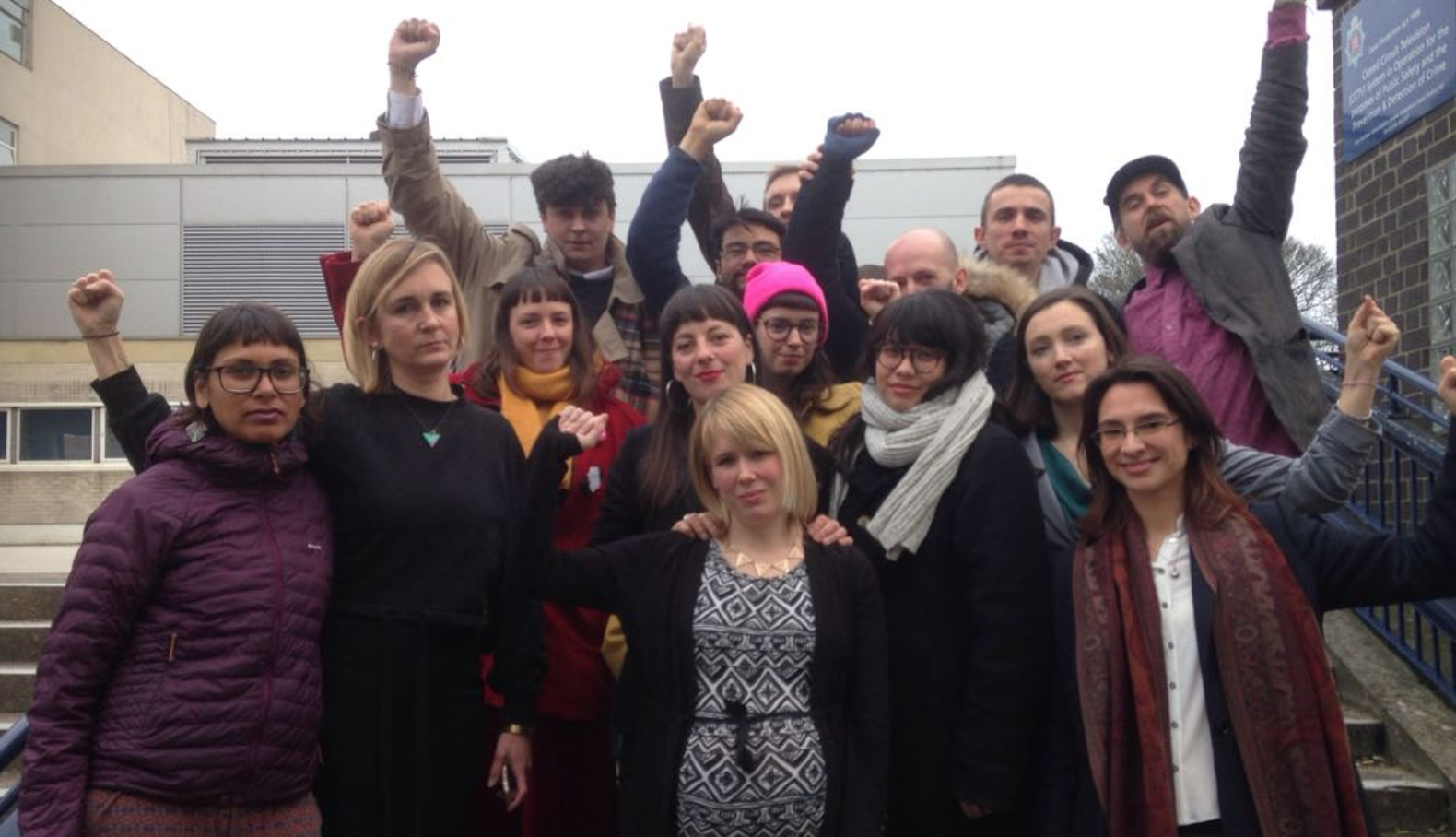Fifteen protestors who stopped a deportation flight from taking off at Stansted Airport in 2017 have had their convictions overturned by the Court of Appeal.
In a judgment published today, the Lord Chief Justice, Lord Burnett, said “there was in truth, no case to answer,” adding that “these appeals succeed on the first ground and all the appellants’ convictions must be quashed.”
The so-called Stansted 15 breached security at the airport and locked themselves to the wing of a charter flight due to deport 60 asylum-seekers to Nigeria and Ghana. They were later charged with ‘endangering an airport’ under the 1990 Aviation and Maritime Security Act.
It was thought to be the first time that the legislation, which was passed following the Lockerbie bombing in December 1988, had been used against individuals taking non-direct violent action.
[This is a] major victory for protest rights. The Stansted 15 have won the case against their terrorism convictions for stopping a forced deportation flight. Protest is key to democracy.
Liberty
As a result, the 12 were handed counts of community service, with three given a suspended prison sentence. However, with the support of human rights organisation Liberty, they later launched an appeal.
In a statement on Twitter following the Court of Appeal’s judgment, Liberty said it was a “major victory for protest rights”.
“The Stansted 15 have won the case against their terrorism convictions for stopping a forced deportation flight,” they continued, “protest is key to democracy”.
Amnesty International UK added: “This is a good day for justice. The Stansted 15 will take their place in the history books as human rights defenders who bravely brought injustices perpetrated by the state into the light.”
The case had highlighted growing concerns by campaigns that the right to protest is being threatened by harsher prosecutions and sentencing. It’s also come under scrutiny more recently, as a result of the ever-changing coronavirus regulations which threaten fines of up to £10,000.
BREAKING: WE (the #Stansted15) WON OUR APPEAL!! I’m so happy. I can’t stop crying. We fucking did it!!! 😭😭😭 pic.twitter.com/EWWnodPaup
— Ben Smoke (@bencsmoke) January 29, 2021
The right to protest falls under Article 11 of the Human Rights Convention, the right to free association, which protects the right of a group to take collective action and the right to freedom of assembly. It also protects the individual right or ability of people to come together and collectively express, promote, pursue, and defend their collective or shared ideas
However, Article 11 is a ‘qualified right’, which means it can lawfully be interfered with in the interest of public safety, the prevention of disorder or crime, or the protection of other people’s rights and freedoms.
In the case of the Stansted 15 they had said their protests were “justified and necessary” due to the human rights issues surrounding deportation flights, which campaigners believed violated both human rights and international law.
In his judgment today, Lord Burnett said that they should not have been prosecuted for the “extremely serious offence” of AMSA they were charged with “because their conduct did not satisfy the various elements of the offence”.
He added: “We recognise that the various summary-only offences with which the appellants were originally charged, if proved, might well not reflect the gravity of their actions.
“That, however, does not allow the use of an offence which aims at conduct of a different nature.”


